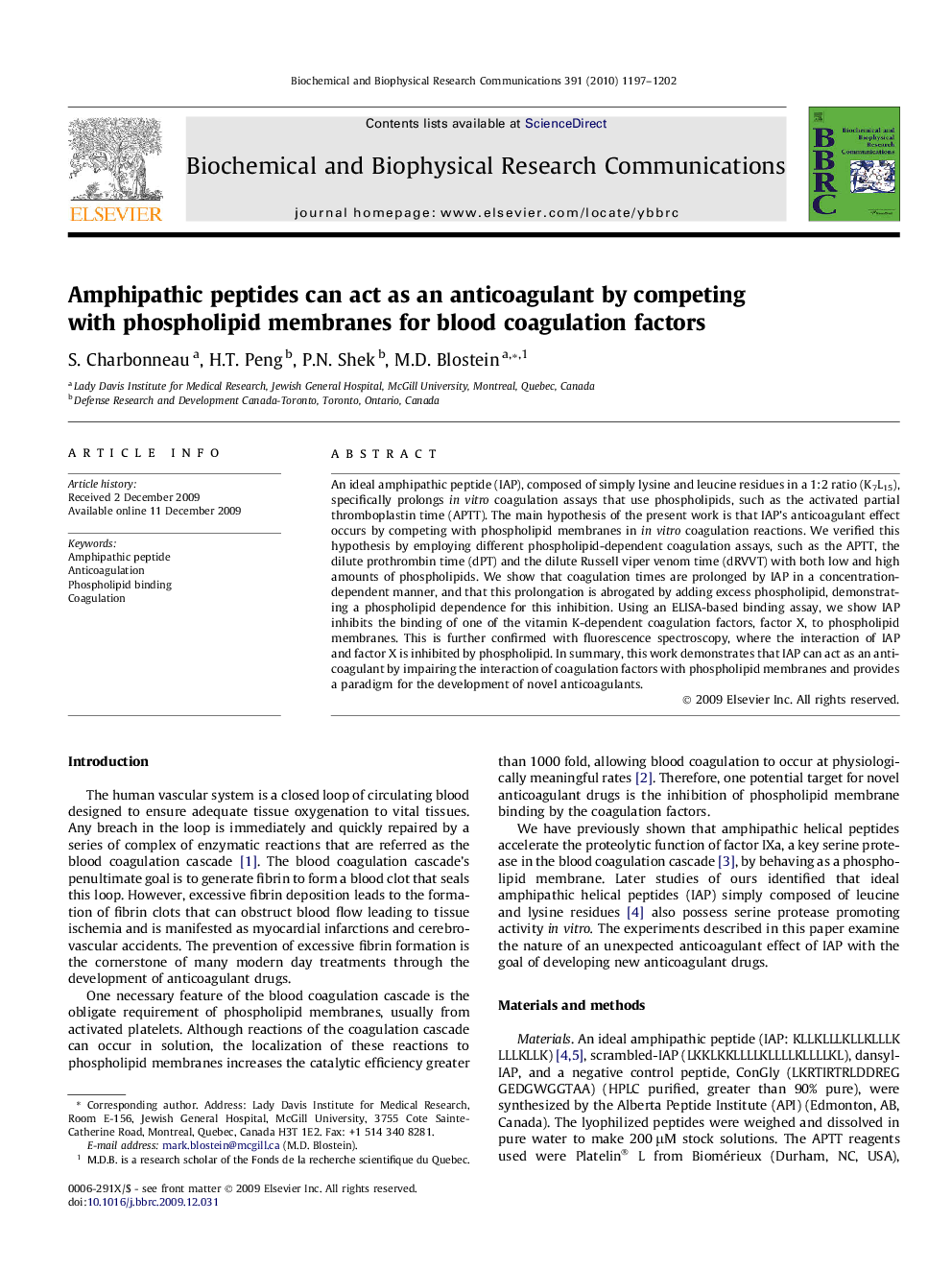| Article ID | Journal | Published Year | Pages | File Type |
|---|---|---|---|---|
| 1932447 | Biochemical and Biophysical Research Communications | 2010 | 6 Pages |
An ideal amphipathic peptide (IAP), composed of simply lysine and leucine residues in a 1:2 ratio (K7L15), specifically prolongs in vitro coagulation assays that use phospholipids, such as the activated partial thromboplastin time (APTT). The main hypothesis of the present work is that IAP’s anticoagulant effect occurs by competing with phospholipid membranes in in vitro coagulation reactions. We verified this hypothesis by employing different phospholipid-dependent coagulation assays, such as the APTT, the dilute prothrombin time (dPT) and the dilute Russell viper venom time (dRVVT) with both low and high amounts of phospholipids. We show that coagulation times are prolonged by IAP in a concentration-dependent manner, and that this prolongation is abrogated by adding excess phospholipid, demonstrating a phospholipid dependence for this inhibition. Using an ELISA-based binding assay, we show IAP inhibits the binding of one of the vitamin K-dependent coagulation factors, factor X, to phospholipid membranes. This is further confirmed with fluorescence spectroscopy, where the interaction of IAP and factor X is inhibited by phospholipid. In summary, this work demonstrates that IAP can act as an anticoagulant by impairing the interaction of coagulation factors with phospholipid membranes and provides a paradigm for the development of novel anticoagulants.
